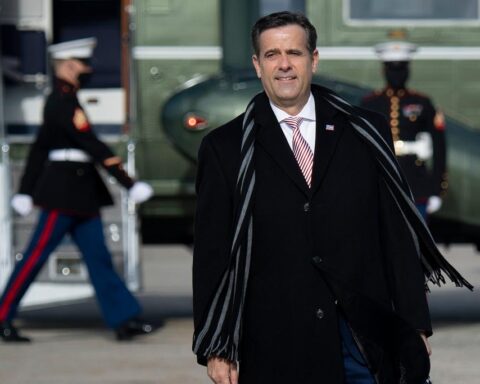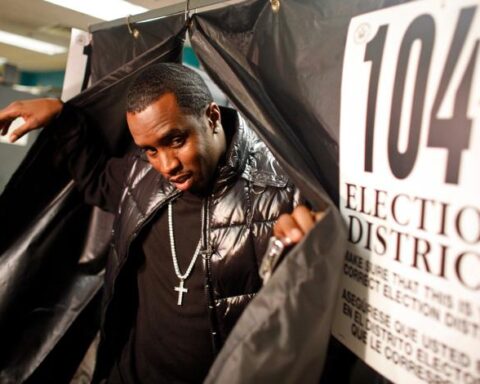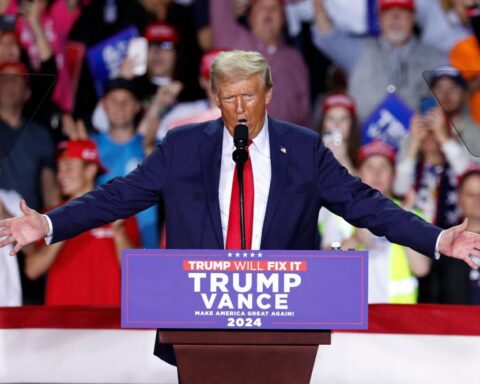Despite Biden’s 2020 pledge for unity, Harris’ latest campaign echoes an elusive goal in a nation grappling with political and social divides.
Vice President Kamala Harris is once again asking Americans to unite as she campaigns for the 2024 election. Drawing from President Joe Biden’s 2020 message of harmony, she’s calling for a renewed spirit of cooperation and an end to the divisions that have characterized recent years. Yet, as Harris leans into these themes, the public is left to wonder: Can the unity she calls for truly be achieved when the original promise seems unfulfilled?
In a speech delivered recently at the Ellipse, Harris passionately invoked the motto “E pluribus unum,” or “Out of many, one,” as a call to Americans to rally together. “It is time to stop pointing fingers,” she said, “and start locking arms.” Harris urged her audience to “turn the page on the drama and the conflict,” in a vision that many feel is reminiscent of Biden’s earlier pledge to see only the “United States,” not “red states and blue states.”
Harris’ message comes as she distances herself from certain controversial positions she took in 2019 and 2020, aiming to reframe her image toward the center. Nevertheless, her platform remains closely aligned with Biden’s administration, whose tenure has brought some of the most polarizing decisions in recent history. Biden, who campaigned on the promise of a unified country, has faced criticism from those who feel his policies reflect a more progressive agenda than one focused on uniting Americans across the political spectrum.
Unity, But at What Cost?
For Biden, governing has at times meant challenging traditional norms, as seen in his handling of issues like immigration, voting rights, and student loan forgiveness. Some Democrats who dissented from his agenda were reportedly pressured to fall in line, revealing fractures within his own party. From denouncing Georgia’s voting laws as akin to “Jim Crow” to pushing forward with student debt relief policies that met legal challenges, Biden’s approach has made it clear he sees his role as advancing transformative changes, even at the expense of national consensus.
Biden’s approach on immigration, for example, has led to what some call an “epochal crisis” at the border, fueling fierce debates over national policy. Harris, as vice president, hasn’t distanced herself from these decisions. Instead, she has stood by Biden, leaving some wondering how she can now promise to bridge the divides that those very policies may have deepened.
A Goal as Elusive as Ever
If Biden’s tenure was meant to be an era of healing and unity, Harris’ latest push for harmony feels like an acknowledgment that this goal remains as distant as ever. The vice president now faces the challenge of fulfilling promises that were only partially realized — or not realized at all — during the last four years.
Despite her optimism, a profound polarization persists across the nation. For many Americans, unity feels more like an unattainable ideal than a tangible goal. The question remains whether Harris’ campaign can ignite the same hopefulness Biden’s did or if the message has lost its resonance after years of intensified division.
A History of Idealism and Pragmatism
The call for unity, while inspiring, is neither new nor universally attainable. History shows that the notion of a fully united country may be more of a political ideal than a practical goal. Even Thomas Jefferson, in his 1801 inaugural address after a contentious election, famously declared, “We are all Republicans. We are all Federalists.” Yet, even then, Americans struggled to transcend their political affiliations. The United States is an inherently diverse and often fractious nation, where opposing viewpoints don’t simply disappear with a rallying cry.
Harris’ 2024 campaign message is striking in its similarity to Biden’s unifying words in 2020. Back then, Americans longed for stability, and Biden’s promise of healing was a balm for a weary public. But four years later, Harris’ appeal feels more challenging, as those same divisions remain.
In the end, Harris’ vision may resonate with those who are fatigued by partisanship, but even they may question whether a slogan of unity can translate into the real change they seek. The Biden-Harris call for unity seems, for now, like an echo from the past — an idealistic promise to bridge divides that remain just as wide.

















